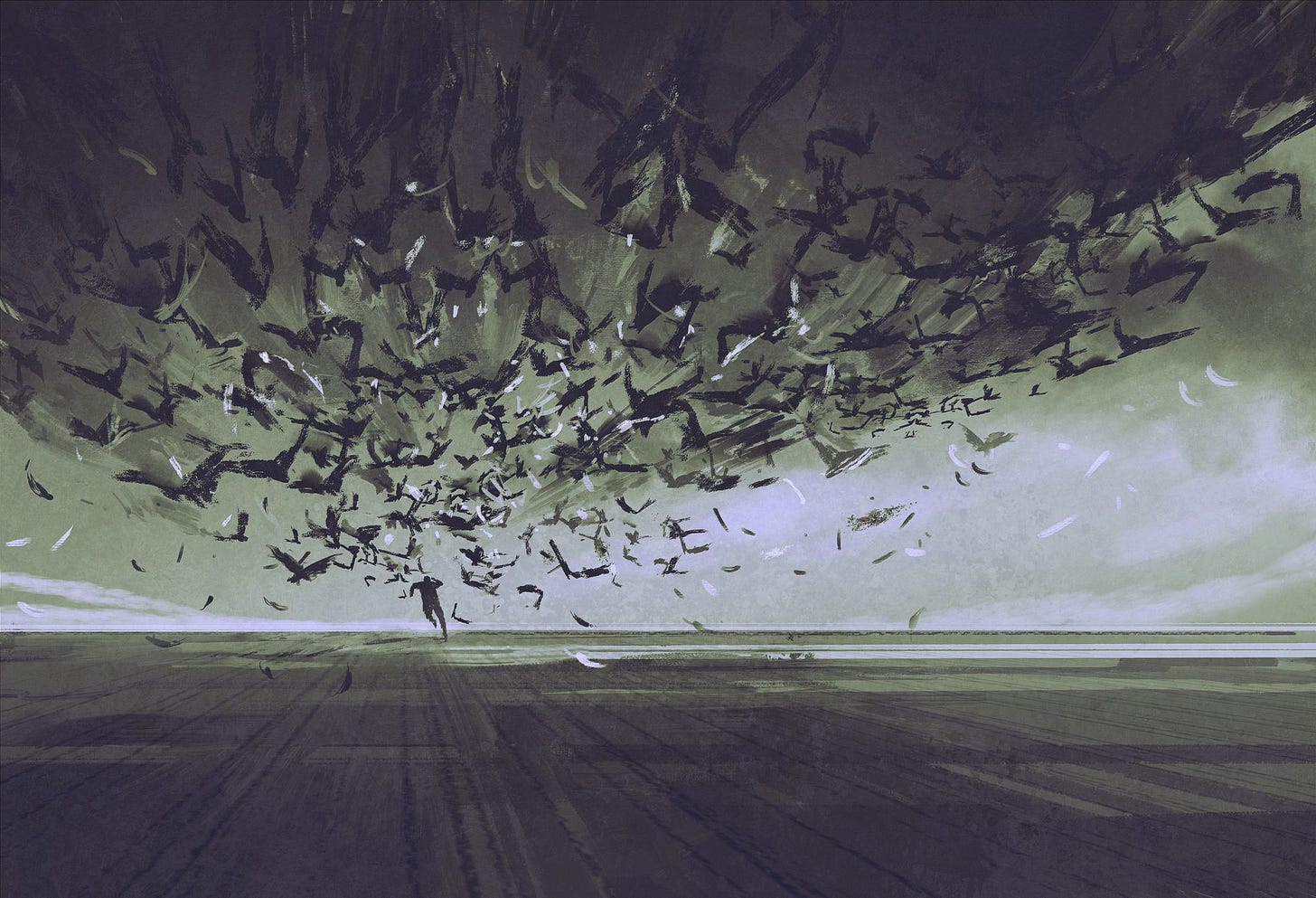It doesn't matter if there's a hurricane heading for California or a new strain of a deadly virus spreading around the world. A lot of people just don't care anymore. They want their vacations. They want their concerts. They get high off telling everyone, "It's just weather" or "You do you."
When they find out they're wrong, they freak out. They're the first ones to fill up their shopping carts with toilet paper.
There’s a psychology behind all this.
It’s called reactance.
Jack W. Brehm introduced the idea of reactance in his 1966 book, A Theory of Psychological Reactance. He argued that people have a natural tendency to resist perceived threats to their freedom and autonomy. They hate being told what to do, even if it’s for their own good.
Psychologists have been studying reactance for almost 60 years now, and they’ve learned a lot. People have no problem indulging in panic when it means loading up their cars with gas and toilet paper. They respond to threats by engaging in the most selfish, irrational behavior.
It's easy.
When you ask them to wear a mask to slow down a pandemic or consume less to save the planet, they don’t panic. Their reactance kicks in. Their brains focus on the perceived loss of freedom, even if it’s trivial.
They see restrictions as the greatest threat.
Research on reactance shows how the public starts to get annoyed, even angry at repeated messages that threaten their sense of freedom. If someone perceives a restriction as unjustified, their body reacts immediately. It elevates their heart rate. They'll do more than ignore the warning. They’ll protest. They’ll try to recruit allies to resist. They’ll rationalize. They’ll demonize.
They’ll rebel. They’ll act out.
They’ll cause trouble.
The problem gets even worse when you observe individualist societies, which include pretty much every western country.
Rugged individualists don’t listen to reasons or explanations for restrictions on their freedoms. Their amygdala takes over. Reactance overwhelms rational thought. At that point, they only care about restoring their freedom. They'll resort to increasingly aggressive measures.
Here's the strangest part:
You'd think someone would at least listen to their level-headed friends or family. They don't. In fact, they react worse.
Individualists feel more threatened when someone they trust starts trying to impose restrictions on them. They value their own sense of free will over their friends and family. They only come around when the danger becomes absolute. Like we keep seeing, it’s usually too late by then.
People even feel vicarious reactance.
Someone might be willing to take precautions against a threat themselves. If they see someone else refuse, they feel a need to defend them. They won't try to convince that person to adopt the precaution.
They'll defend their "choice."
The more you try to explain the urgency of a situation, the more reactance you encounter. Psychology has shown that softer messaging doesn’t trigger someone’s reactance. Does it actually persuade them to do the right thing, though? That’s unclear. At best, you get mixed results.
More often than not, individualists ignore the message.
They tune out.
Well, at least we know what's going on now. There's a natural tendency in many humans to ignore threats and warnings until they become absolute and unavoidable. They're hypervigilant about their personal freedoms. They'll devote most of their energy to fighting precautions.
When it's too late, they don't apologize. They don't suddenly become responsible citizens. They do what they said they wouldn't.
They panic.
What we're seeing isn't new. The stakes are just getting higher. Twenty years ago, the problem was mostly about smoking and seatbelts. Psychologists saw reactance as a nuisance to public health and safety.
Now reactance itself poses a threat to the rest of us. The far right's aggressive insistence on personal freedom has gone mainstream. Nobody wants to give up the tiniest convenience for anyone else. Our sense of collectivism and the greater good is eroding. The message from our politicians and our biggest media outlets: "There's no cause for alarm." The CDC won't even admit that it's a good idea to wear a mask to protect yourself from smoke.
How sad is that?
I'm afraid the situation is going to get worse before it gets better. Get ready for an even bigger helping of, "There's no cause for alarm." The government is going to wait until there's a hurricane or a wildfire outside your door. Then they're going to tell you to get out of its way.
Until then, they're going to do what the Biden administration just did. They'll say you have no right to a livable planet.
That's how they roll.
As the social contract dissolves, more of these rugged individualists are going to freak out when things get bad, because there's no social fabric to take care of them during emergencies. They aren't going to wise up. They're going to rush out for toilet paper and bottled water.
It won't save them.



